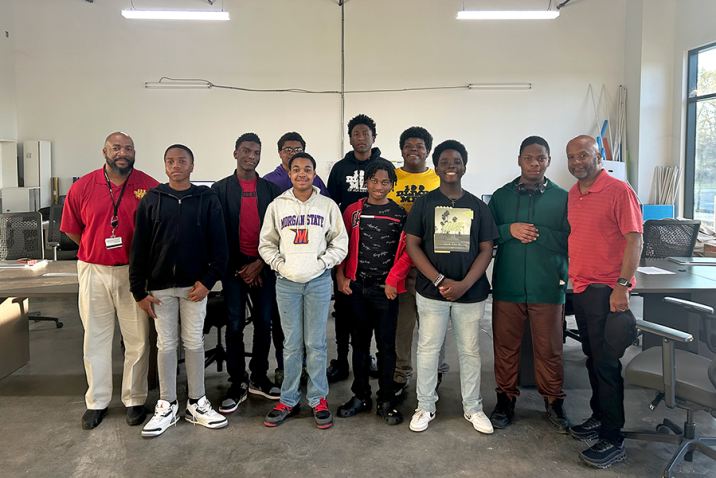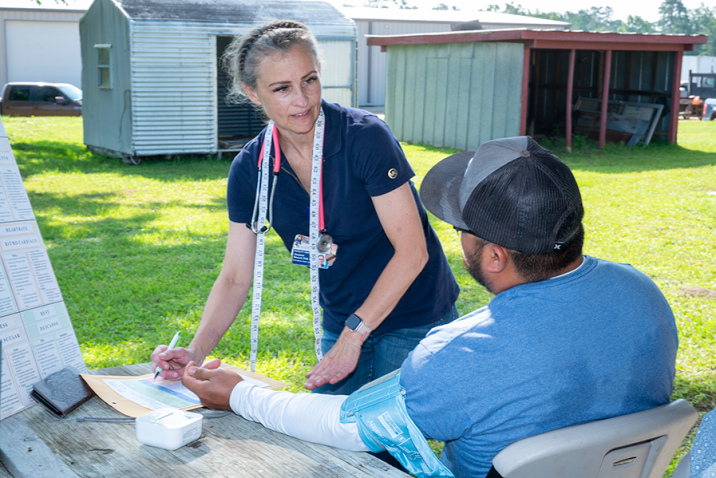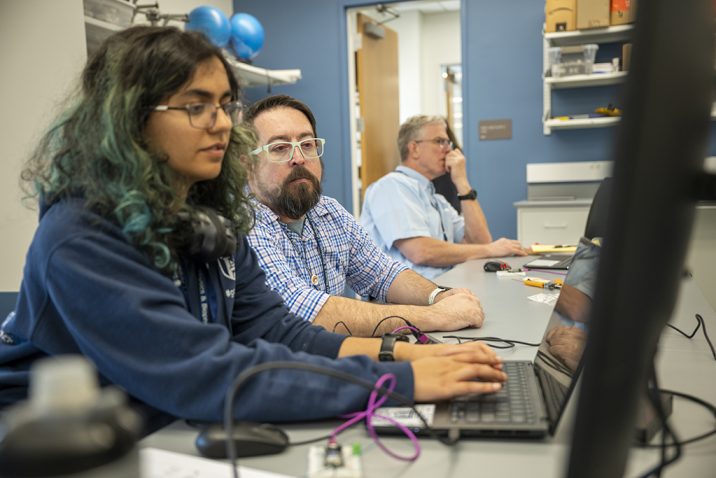Augusta University is Seeking Innovation and Economic Prosperity Designation.
The Innovation and Economic Prosperity (IEP) designation, awarded by the Association of Public and Land-grant Universities (APLU), recognizes universities that excel in fostering economic growth, innovation, and community engagement. This prestigious designation highlights our commitment to driving regional development through research, talent development, and strong community partnerships.
By pursuing the IEP designation, our university engages in a self study process while engaging with internal and external stakeholders within IEP’s three pillars:
University-led research and entrepreneurship initiatives.
Programs preparing students for workforce development.
How the university collaborates with the community to enhance quality of life.

The IEP designation aligns with Augusta University's strategic plan by enhancing our role as a leader in innovation, talent, and place. It reflects our commitment to fostering economic growth, supporting local partnerships, and advancing opportunities that strengthen our region and improve lives.
Why It Matters:The IEP designation benefits students by expanding opportunities for experiential learning, entrepreneurship, and career development. Faculty gain greater support for research and collaboration that drives innovation. Businesses benefit from partnerships that fuel growth, talent pipelines, and access to cutting-edge ideas. The region thrives through enhanced economic development, workforce readiness, and quality of life.
Rooted ininnovation, talent, and place, this designation strengthens Augusta University’s impact as a catalyst for progress in our community.
Cultivating a vibrant ecosystem for research, technology transfer, and new venture creation.
Aligning university programs with the evolving needs of the regional workforce.
Building strong and mutually beneficial relationships with local communities.

Kristina B. Baggott, MBA


As part of the innovation and economic prosperity (IEP) self-study of Augusta University, the following representatives were identified to serve as the primary points of contact for each category ofTalent, Innovation, and Place. Each representative assisted the team in identifying and engaging internal and external stakeholders for interviews, focus groups, and workshops.

Chris McKinney

Scott Thorp

Julie Goley

Margie Miller

Rhonda Banks



What is the APLU IEP Designation?
The Association of Public & Land-Grant Universities (APLU) Innovation & Economic Prosperity (IEP) designation recognizes universities for their impact on economic engagement, innovation, talent, and place-based development.
Why are we pursuing the IEP designation alongside the Carnegie Classification for Community Engagement?
Both align with our strategic plan. The IEP designation highlights our role in innovation and economic growth, while the Carnegie Classification emphasizes our community engagement efforts.
What is the difference between economic engagement and community engagement?
Economic engagement focuses on driving regional economic growth through innovation, entrepreneurship, and workforce development. Community engagement involves partnerships that improve social and cultural well-being.
How will we assess our economic engagement practices?
Through a self-study process, campus-wide surveys, roundtable discussions, and stakeholder interviews, culminating in a strategic improvement plan.
What is the timeline for the self-study and application process?
Who can I contact for more information?